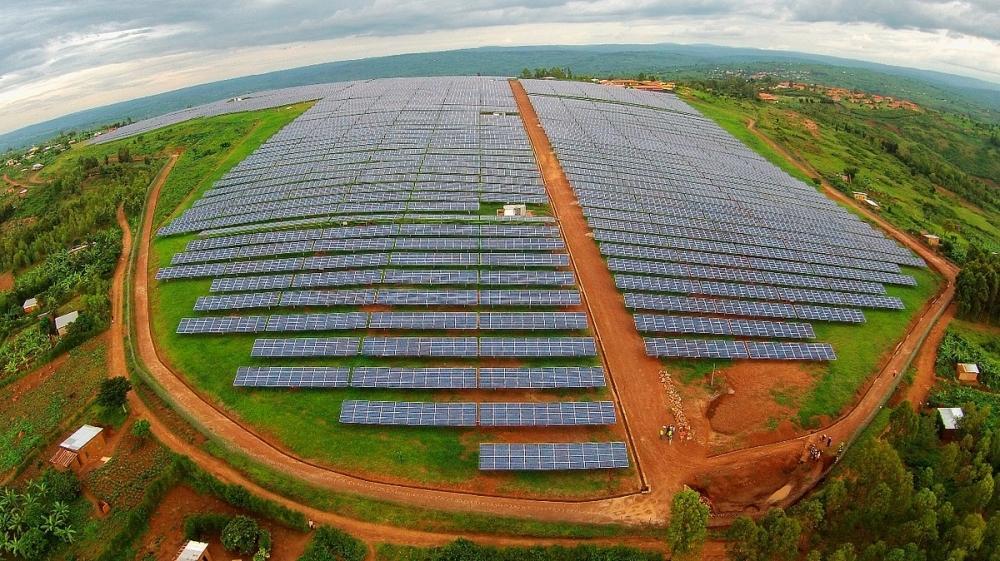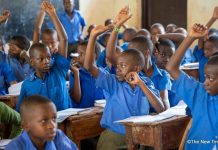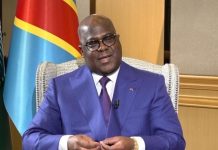Africa-Press – Rwanda. Rwanda has made significant progress in providing electricity to its citizens with 76 per cent of the population currently accessing it. The country is increasingly relying on renewable energy sources for power generation.
The installed capacity for renewables has reached 52 per cent, the Minister of Infrastructure, Jimmy Gasore, announced yesterday, April 17, while chairing the 14th Assembly of the International Renewable Energy Agency in Abu Dhabi, UAE.
This signifies that more than half of the power plants or electricity generation infrastructure in the country is dedicated to renewable sources.
Rwanda aims to have 60 per cent of its energy come from renewable sources such as hydropower and solar by 2030.
The Minister said that the government of Rwanda is convinced that the investment in the area of renewables will significantly transform the lives of the population across Africa soon.
“We expect that renewable technologies will contribute a lot to the socio-economic development of our country, and we are determined to prioritise renewable energy as a means to reduce its carbon emissions and contribute to a greener and more sustainable future,” he noted.
Gasore indicated that developing sustainable renewable energy resources will help countries to meet the United Nations Sustainable Development Goals (SDGs), a set of goals aimed to put an end to poverty and inequality by 2030.
The 28th United Nations Climate Change Conference known as COP28 in Dubai in 2023 indicated historic progress through the UAE Consensus to transitioning away from fossil fuels in a just, orderly, and equitable manner.
It called for tripling renewables and doubling energy efficiency by 2030, amongst other outcomes.
International Renewable Energy Agency’s latest brief on ‘Tracking COP28 outcomes: Tripling renewable power capacity by 2030’ highlights that 2023 set a new record in renewables deployment, adding 473 gigawatts to the global energy mix.
However, Gasore said indicated that what has been achieved is less than half of the 1,100 gigawatts of renewables capacity that must be installed each year, by 2030.
“Tripling renewable power capacity requires concerted efforts to enhance infrastructure, policies and workforce capabilities, underpinned by increased financing and closer international cooperation,” he remarked.
This is, of course, no small task, but it is vital to mitigation, adaptation and resilience.”
The Minister called for urgent actions to deliver on climate, energy and development goals.
“We must modernise and expand our infrastructure to ensure that it is fit for the new energy system that we are in the process of creating,” he said, adding that this will be possible by ensuring there us a skilled workforce.
Gasore emphasized that the actions require greater financing and stronger national, regional, and international collaboration.
“As we mobilise our actions, we must not forget that different countries and regions are faced with different needs, challenges, and opportunities,” he said.
He added, “We must not forget that for many developing countries, the energy transition is key to ensuring universal access and overcoming energy poverty,” he noted.
As of the end of December 2023, the off-grid energy access rate was 21.4 per cent of all Rwandan households with access to electricity.
Rwanda’s revised National Electrification Plan seeks to connect 52 per cent of households to the national grid and allocate 48 per cent to off-grid solutions.
Rwanda’s investment in renewable energy is anticipated to reduce total emissions by 4.6 million tonnes, or 38 per cent, by 2030, in line with its national commitments to the United Nations Framework Convention on Climate Change (UNFCCC).
For More News And Analysis About Rwanda Follow Africa-Press






